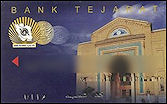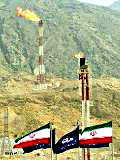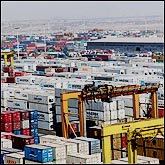 Yesterday, the U.S. Treasury Department’s Office of Foreign Assets Control (“OFAC”) added Iran’s Bank Tejerat to the list of Specially Designated Nationals and Blocked Persons List (the “SDN List”). This means that no U.S. person may engage in financial transactions with Bank Tejerat and all assets of Bank Tejerat that come into the possession or control of U.S. persons must be blocked.
Yesterday, the U.S. Treasury Department’s Office of Foreign Assets Control (“OFAC”) added Iran’s Bank Tejerat to the list of Specially Designated Nationals and Blocked Persons List (the “SDN List”). This means that no U.S. person may engage in financial transactions with Bank Tejerat and all assets of Bank Tejerat that come into the possession or control of U.S. persons must be blocked.
The real impact of this is that this may well signal the end of legal exports of agricultural products, medicine and medical devices to Iran under the authority of the Trade Sanctions Reform and Export Enhancement Act of 2000, or TSRA (tis’-ruh) in Exporteranto, the lingua franca of export professionals. Exports to Iran licensed by OFAC require that the exporter must deal directly with a non-Iranian bank and that the non-Iranian banking intermediary may not use an Iranian bank on the SDN List to complete the financial aspects of the transaction.
Here is a link to a comprehensive list of Iranian financial institutions on the SDN List. As you can see, the U.S. has now designated what I believe to be all Iranian banks that are involved in international financial transactions. Here is a list on Wikipedia purporting to be all the private banks in Iran, but I am unaware of whether any of these other banks are able to engage in international transactions, although the website of EN Bank suggests that it may be able to handle international financial transactions.
That may mean, I’m afraid, that as a practical matter, TSRA exports to Iran will be cut off because there is no way for the U.S. exporter to be paid. If anyone is aware of any other banks that can be used for TSRA exports to Iran and that are not on the SDN List, please share that in the comments section.
Couple this with OFAC’s recent action putting most (and perhaps all) shipping ports in Iran on the SDN List when it designated Tidewater Marine, the executive branch has now effectively nullified the intent of Congress when it passed TSRA. This nullification could easily have been avoided if OFAC issued (or issues) general licenses that permit licensed TSRA transactions to use Iranian banks even if they are on the SDN List and to use ports on the SDN List for licensed TSRA transactions. But there is no indication that this is going to happen.
Of course, in the present environment, it is unlikely that Congress will protest this de facto executive repeal of the act.

 Posted by
Posted by  Category:
Category: 

 The White House signed, on November 19, Executive Order 13590, which increased the sanctions on foreign firms doing business in Iran. An official copy of the executive order has not been released but it is described in this “
The White House signed, on November 19, Executive Order 13590, which increased the sanctions on foreign firms doing business in Iran. An official copy of the executive order has not been released but it is described in this “
 A Federal Register notice is scheduled to be
A Federal Register notice is scheduled to be 


